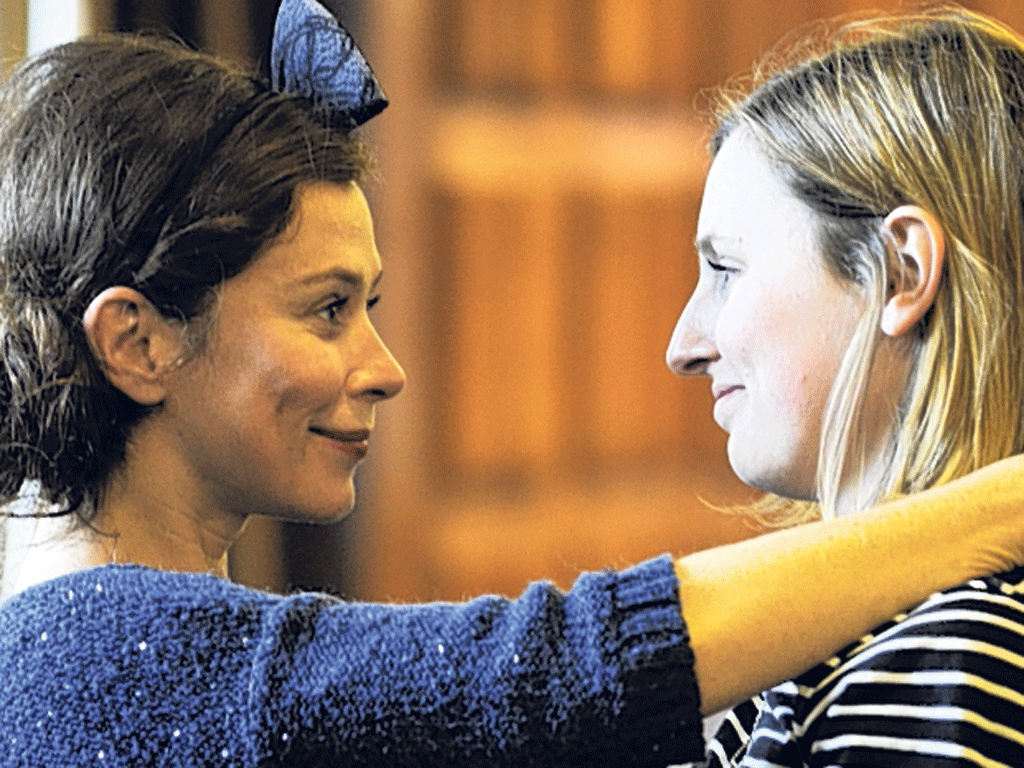Uncle Vanya: The restoration of a Russia that was lost in translation
As his version of Uncle Vanya opens in the West End, writer Christopher Hampton recalls how he first fell for Chekhov

Your support helps us to tell the story
From reproductive rights to climate change to Big Tech, The Independent is on the ground when the story is developing. Whether it's investigating the financials of Elon Musk's pro-Trump PAC or producing our latest documentary, 'The A Word', which shines a light on the American women fighting for reproductive rights, we know how important it is to parse out the facts from the messaging.
At such a critical moment in US history, we need reporters on the ground. Your donation allows us to keep sending journalists to speak to both sides of the story.
The Independent is trusted by Americans across the entire political spectrum. And unlike many other quality news outlets, we choose not to lock Americans out of our reporting and analysis with paywalls. We believe quality journalism should be available to everyone, paid for by those who can afford it.
Your support makes all the difference.When I went to work for the Royal Court Theatre in 1968 as their first resident dramatist, I was lucky enough to be involved in a radical new initiative, which had been launched there earlier in the decade. Up until then, classic plays in translation were generally performed in the careful academic versions prepared for Penguin Classics or some equally respectable publisher. George Devine and his successor William Gaskill had, however, decided that the ability to write speakable dialogue for actors was in all probability rarer than the ability to translate. They decided to apply this theory to Chekhov. Thus, Ann Jellicoe had done a version of The Seagull, and Edward Bond had tackled Three Sisters: now, Anthony Page asked me if I would like to take on Uncle Vanya, to be produced at the Court early in 1970.
My first encounter with Chekhov (the beginning, though I didn't suspect it at the time, of a lifelong romance) was a school outing to see the legendary Olivier production of Uncle Vanya. Moved and impressed as I was, I couldn't help feeling the play was, if not sentimental, at least a little soft-centred, and the language a touch stilted and over-poeticised. When I put this to Nina Froud, the kindly Russian woman Anthony Page had brought in to supervise the translation, she immediately agreed. English Chekhov, she said, was infected with a fatal lyricism quite alien to Chekhov's brisk, lucid language and sardonic humour; it was our task, she went on, to restore the hard edges of truth, so often blurred by the indulgent melancholy that had been the vogue.
I was vividly aware that Anthony had cast Paul Scofield as Vanya. Scofield was indirectly responsible for the fact that I had wanted to work in the theatre in the first place: his King Lear, (which I had seen on another school outing) had so disturbed and moved me, I began to think a life in the theatre was something worth attempting. Scofield was 47 at the time, precisely the stipulated age for Vanya – and all his immense gifts for conveying thwarted intelligence, sarcastic fury, frustration, dejection and despair were in full working order. I found rehearsals so exciting, I had difficulty breathing. Respect for the text was so much the unquestioned Gospel of the Royal Court that Scofield did not ask for a single change in the lines; indeed, when I once managed to ask him why one of his lines was so eccentrically phrased, it turned out I'd inadvertently left out a comma and he was simply observing the punctuation.
The play ran for six weeks or so at the Court; I saw it at least 30 times: I can close my eyes to this day and hear Scofield's astonishing voice, full of a kind of sneering anguish, saying: "We were so proud of him and his academic career," the last word compressed into a single bitter syllable. It was the first of only a handful of productions I've been involved with that soared far above my fondest hopes and imaginings.
It's often said that the best of the Chekhov plays is the one you've seen most recently. Uncle Vanya doesn't have a suicide like The Seagull, or an adulterous couple and a duel more or less indistinguishable from murder, like Three Sisters; nor does it seem to announce the end of an era, like The Cherry Orchard. All it has is a series of ludicrously bungled attempts at murder and suicide and adultery. Perhaps the failures are what makes it feel the saddest and most truthful of these great tragi-comedies.
'Uncle Vanya' is at the Vaudeville Theatre, London WC2 (unclevanyatheplay.com) from 25 October to 16 February
Join our commenting forum
Join thought-provoking conversations, follow other Independent readers and see their replies
Comments